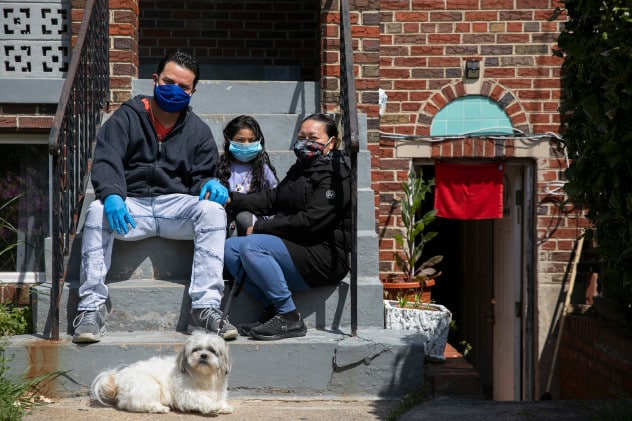Slightly less than a year ago, when, like now, many hotels in the Costa Blanca were closed, because the pandemic had once again confined us to our homes, with the curfew and perimeter closures, the crisis had everyone baffled.
In 2008, after the real estate bubble burst, hoteliers were able to lower their prices a little, a measure that seemed to work, but this crisis is completely different, with the fear of traveling also playing a major part in the situation?
We had the green shoots of summer and autumn, when the tourism sector was once again able to look to the future with a measure of belief. It seemed that the nightmare was over, the telephones were constantly ringing in the booking centres, holiday websites were on fire and many hotels even filled their rooms for Christmas and New Year two months before the scheduled holidays.
But then Covid decided to invent a new variant, omicron, and everything was turned on it’s head, at least for the hospitality sector, an industry that directly employs many tens of thousands of people on the Costa Blanca.
At the beginning of December the phones stopped ringing, and when they did so it was only to notify of cancellations. Once again, everything was filled with uncertainty as infections began to multiply, and despite the fact that hospitals are not at the situation they were 12 months ago people still mix at their peril as the vaccine to eliminate the virus has not yet been found.
Just a few days before the start of 2022, the sector is back on the ropes and with it thousands of workers are once again being threatened with a return to ERTE in January.
Highest daily increase
The Valencian Ministry of Health has reported a new increase in infections in the province with Alicante adding 1955 cases of covid, the highest daily increase since last February. In addition, the accumulated incidence in the province also rose. Currently, it stands at 764.2 cases, while last Tuesday – the last data update by Health – it was 645.
Cases in the Region of Murcia also continue to grow and have now reached 2,000 positives per day. This was reported by the Ministry of Health in their most recent figures released last Thursday when a total of 1,999 new infected were confirmed.
Accumulated Incidence
During the period Tuesday to Saturday, nationwide, the accumulated incidence has risen from 611 to 911, an increase of almost 50%, with it expected to peak beyond 1000 when the figures are next released on Tuesday.
But it is the figures by age group that really tell the story with the highest incidence rate amongst those aged 20-29, currently at 1,429. Within the rest of the age groups the incidence rates are:
- Aged 11 and under – 1,074.76 (previously 957.59)
- 12-19 years – 741.95 (619.31)
- 20-29 years – 1,429.85 (1,180.11)
- 30-39 years – 1,222.10 (1,029.34)
- 40-49 years – 1,087.63 (937.59)
- 50-59 years – 810.40 (699.33)
- 60-69 years – 643.02 (583.03)
- 70-79 years – 278.28 (254.16)
- Aged 80 and over – 235.00 (209.31)
Booster Vaccine
Although Spain has been lauded in recent months for the speed at which it has administered it’s first two doses of the vaccine the same cannot be said of the booster where it lags behind many of it’s EU counterparts.
According to the European Centre for Disease Control, of those aged over 12 in Spain, only 11.8% have received a third dose. The average across the whole of the EU is almost 19%. Of the 27 EU states it currently sits in 20th place.
The news has come as somewhat of a ‘wake up’ call to Prime Minister Sanchez who has now instructed the Ministry of Health to pick up the pace.
The recent changes in the criteria applied by Valencia’s Ministry of Health regarding booster vaccinations for covid-19 were causing each health department to apply different standards in relation to booster doses, a disparity that has created confusion and anger among users and frustration among health personnel who are carrying out the vaccinations, but who have to face hundreds of daily complaints.
The Health Authority has now said that in an effort to vaccinate all people over 60 years of age before the end of the year and teaching staff before January 10, individuals will be summoned via SMS or phone call, to be vaccinated at a local vaccination point or health centre.
At these vaccination points, the groups established in the vaccination strategy will be immunised only by scheduled appointment
At the other mobile vaccination points, the ‘drop-in centres’ where members of the public can attend without an appointment, only those people requiring a first or second dose of the vaccine will be vaccinated.
Once these groups have been vaccinated, Health will then begin to summon people over 50 years of age, and subsequently, people over 40 years of age (as the minimum interval for the booster dose is met) to administer to this population the booster dose.
Covid Passport
With the requirement to produce a covid passport in restaurants, bars and cafes, despite Health ruling out it’s application outdoors, the President of the Generalitat, Ximo Puig, has confirmed that the Generalitat Lawyers Office is studying how to implement the measure on terraces within the Valencian Community.
Asked about the question, Vice President Mónica Oltra has said that the is seeking a judicial endorsement “in case it was necessary at a future date” before Reyes. She said that “Nothing is ruled out, everything is being considered but at the moment it is not on the table.”
However, until January 31, the requirement to produce a covid passport, as well as in bars and restaurants, is extended to the interior of gyms, swimming pools, circuses and cinemas. Also to the interiors of the hospitality industry, regardless of the capacity of the premises.





